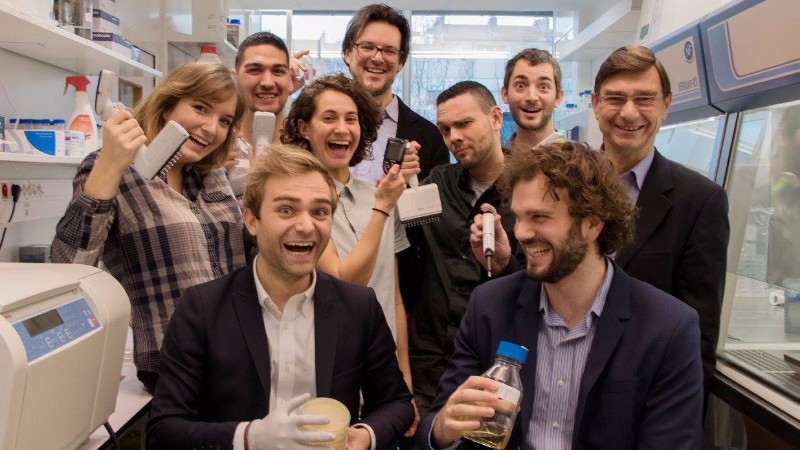Newsletter Signup - Under Article / In Page
"*" indicates required fields
You’ve surely heard how great company culture is the key to the success of tech giants Google and Facebook. Does it also apply to biotech companies?
Company culture is what drives employees to give their best every day for a cause they believe in. It’s what makes the best stay loyal to a firm over the years. Some firmly believe in the power of culture, especially in an industry driven by fast-paced innovation, arguing that success can only be achieved by creating a setting where ideas with breakthrough potential can be shared, tested and developed.
The best-known example of great company culture in biotech is Genentech, a San Francisco-based company that has been repeatedly named one of the best places to work. Besides great salaries and working conditions that give workers space for personal development, Genentech makes sure the employees feel close to the company’s growth by celebrating every big milestone. It also goes above and beyond by celebrating taking risks that don’t end up succeeding in its “Awesome Failure Awards,” knowing such efforts are what fuel innovation.

The biotech has thoroughly demonstrated that a great company culture can translate into great results. But what is most impressive is that it has shown that good culture can be maintained, though maybe not fully, even after being acquired by a big firm like Roche, renewing the top management positions and scaling up to over 14,000 employees.
In Europe, MorphoSys seems to be another great example of great culture sustained after growing to the clinical stage and counting with over 400 employees. Simon Moroney, the CEO, said at our Munich Meetup that he makes sure he still takes the time to personally meet all new employees. “We try and maintain a great culture there because I think it helps productivity,” he explained. “If you have an environment where people want to come, and want to work, then the company will be successful. We work very hard at that.”
Many young companies today follow this example. Eligo Bioscience, a French startup fighting antibiotic resistance with CRISPR and phages, is one of many examples. Its success does not stop the team from having fun, coming up wit nicknames with their robots, and sharing it all online.

The culture of other biotechs is much more aggressive. A clear example is Moderna, a startup that managed to attract a massive €1.74Bn ($1.9Bn) before having any human trial data for its flagship mRNA technology. After scaling-up at a rate of roughly doubling in size each year, Moderna’s image has suffered lately after STAT News reported anonymous complaints about abusive emails, exceedingly long hours and even “failed experiments met with reprimands and even on-the-spot firings“.
Culture can, in this case, be a double-edged sword. The aggressive management style of Moderna might have helped it advance very fast. But over a dozen high executives have quit in the past years, and when the best talents start to run away, long-term success can be at risk.
Choosing and maintaining the best culture for a particular company is definitely an important piece of the strategy that helps a biotech succeed. Do you know of any other names worth mentioning, whether for good or bad?
Images from studioworkstock /Shutterstock; Genentech; Eligo Bioscience






